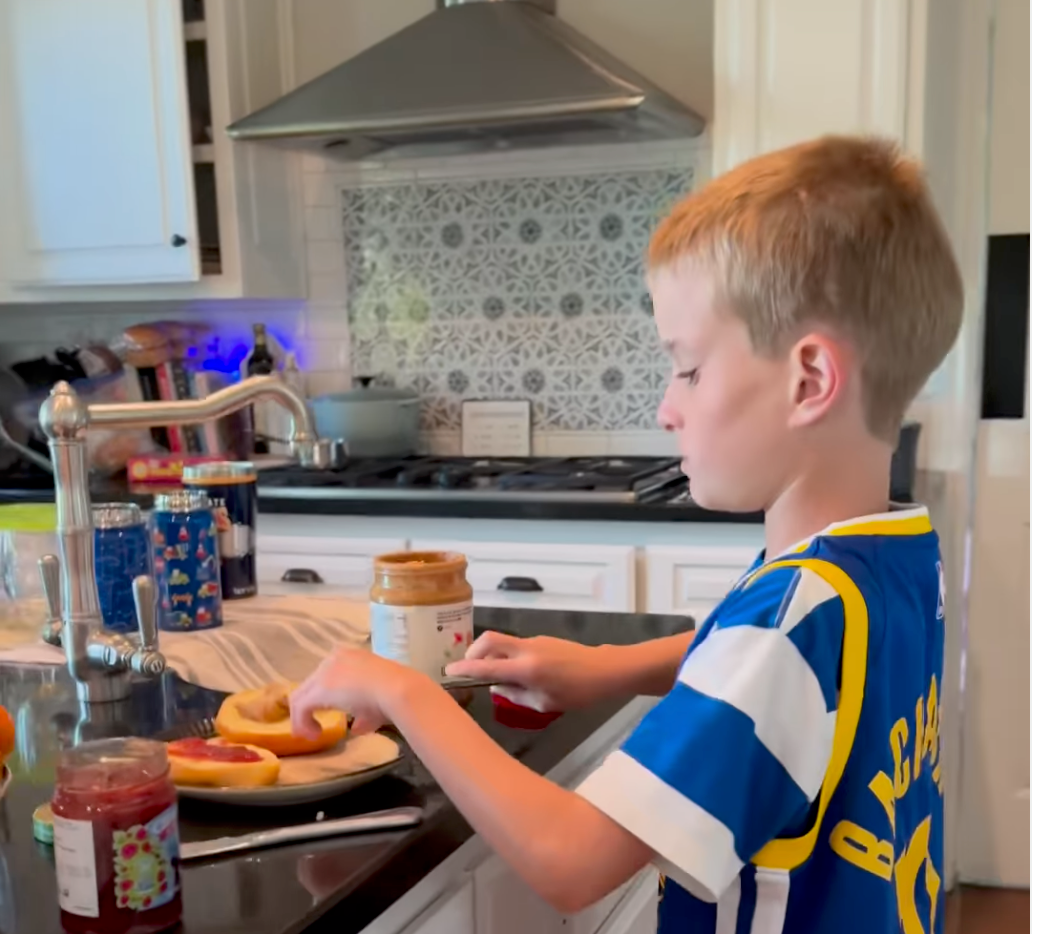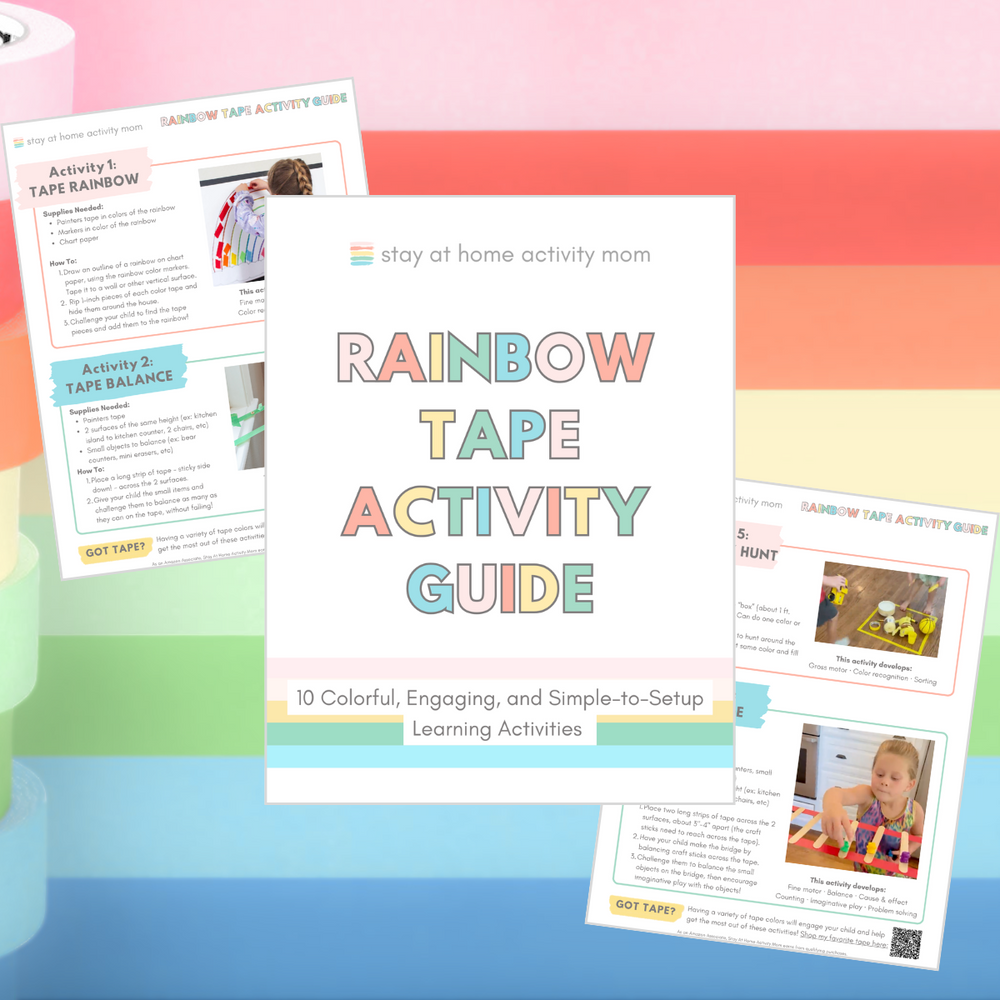

Build School-Ready Listening Skills Through Simple Daily Routines
As back-to-school season approaches, some parents may feel nervous about their child's ability to follow classroom instructions. Totally understandable, especially if a classroom environment is new to your child! These simple following directions activities use everyday routines and household items to build essential listening and comprehension skills.
Why Following Directions Activities are Essential for School Success
The ability to follow directions can directly impact your child's experience in their classroom, where they will need to listen and respond to teacher instructions. My following directions activities target the specific cognitive skills needed for processing multi-step instructions, creating the attention and comprehension necessary for when school begins.
Practice Makes Progess
Teachers note that students who can follow multi-step directions adapt more quickly to classroom routines and school expectations. By implementing these activities during back-to-school prep time, you're setting your child up for classroom confidence and success!
School Readiness Through Everyday Practice
Following directions activities should build naturally on developmental stages while preparing for school expectations. These activities provide age-appropriate challenges that mirror classroom instructions without overwhelming young learners during this exciting transition time!

What You'll Need
- Kitchen items: measuring cups, mixing bowls, utensils
- Child-safe "cleaning supplies": child-safe spray bottles, towels, small brooms
- Toys and books already available throughout your home
- Clothing and accessories for dressing practice
-
Art supplies: crayons, paper, stickers
Safety for Young Children
Always prioritize safety when using these supplies and practicing following directions:
- Supervise closely during all activities involving small objects
- Choose age-appropriate materials to prevent choking hazards
- Inspect tools regularly for damage or wear
- Start with larger objects and progress to smaller items as skills develop

Following Direction Activities to Try!
Morning Routine Direction Games
Morning routines provide perfect opportunities for following directions activities:
Getting Dressed Directions:
- Two-Step Dressing - "Get your shirt, then put it on"
- Sequence Practice - "First socks, then shoes"
- Location Instructions - "Find your jacket in the closet, then bring it here"
- Independence Building - "Put on your shirt, then come show me"
Breakfast Directions Challenges:
- Table Setting - "Get your plate, then put it on the table"
- Self-Service Practice - "Pour your juice, then sit down"
- Cleanup Instructions - "Clear your dishes, then wipe the table"
- Choice Following - "Choose cereal or toast, then tell me what you picked"
Kitchen Cooking Direction Activities
The kitchen is the perfect environment for hands-on following directions activities while building life skills:
Simple Cooking Directions:
- Ingredient Gathering - "Get the flour, then find the measuring cup"
- Mixing Instructions - "Add the water, then stir three times"
- Safety Practice - "Wash your hands, then dry them with the towel"
- Cleanup Directions - "Put away the spoon, then close the container"
Advanced Kitchen Challenges:
- Three-Step Recipes - "Get a bowl, add cereal, then pour milk"
- Organization Tasks - "Put spoons in drawer, forks in drawer, then close it"
- Timing Practice - "Count to ten, then tell me you're finished"
- Problem-Solving - "If the bowl is dirty, get a clean one, then we can continue"
Treasure Hunt Direction Adventures
Treasure hunts make following directions activities exciting and engaging:
Simple Treasure Hunts:
- Location Practice - "Go to the kitchen, find something red, bring it back"
- Action Sequences - "Hop to the couch, sit down, then clap twice"
- Object Collection - "Find three books, stack them, then call me over"
- Memory Challenges - "Get a teddy bear, give him hug, then put him on the bed"
Progressive Difficulty Levels:
- Start with visible objects for easier success
- Add time elements like "quickly" or "slowly"
- Include counting in instructions for math integration
- Create themed hunts that match your child's interests
Cleaning and Organization Direction Games
Cleaning activities are practical following directions activities that also give your child a sense of ownership and accomplishment:
Room Cleanup Directions:
- Sorting Instructions - "Put all blocks in the bin, then close the lid"
- Category Organization - "Books on the shelf, toys in the basket, then sit down"
- Sequence Building - "Make your bed, pick up clothes, then check with me"
- Quality Control - "Clean room, look around, fix anything messy"
Bathroom Direction Practice:
- Personal Care - "Brush teeth, rinse mouth, then put toothbrush away"
- Hygiene Routines - "Wash hands with soap, dry them, then come show me"
- Independence Building - "Use potty, flush, then wash hands"
- Organization Skills - "Put towel on hook, close cabinet, then leave bathroom"
Educational Benefits
Cognitive Development Enhancement
Following directions activities support broader learning and school preparation:
- Memory development through instruction retention and execution
- Sequencing skills understanding order and logical progression
- Problem-solving abilities when adapting to unexpected situations
- Attention span improvement through focused listening practice
Language and Communication Growth
These activities naturally promote language development and school readiness:
- Vocabulary expansion through instruction-specific terms
- Listening skills development for classroom success
- Comprehension improvement processing complex information
- Response communication practice expressing understanding and forming questions
Executive Function Development
Following directions activities build crucial executive function skills:
- Working memory practice holding information while completing tasks
- Cognitive flexibility adapting when directions change or problems arise
- Inhibitory control stopping other activities to focus on instructions
- Planning and organization thinking through multi-step sequences
Your Turn to Play!
With everyday household routines and simple daily activities, you can create engaging following directions activities that build essential listening and comprehension skills while having fun together. These activities provide natural school readiness opportunities that fit seamlessly into busy back-to-school schedules!
The beauty of using daily routines for following directions activities lies in their consistency and familiarity. Children feel comfortable practicing direction-following in environments they know well. This approach builds school confidence while developing crucial skills needed for classroom success and teacher interactions.
Remember, consistency during back-to-school prep matters more than perfection. Start with simple one-step directions that appeal to your child, and gradually expand complexity as their school preparation skills and confidence grow!
Disclaimer: This post may contain affiliate links. If you purchase through these links, I may earn a small commission at no additional cost to you. All recommendations are based on items I personally use and love with my own children.






